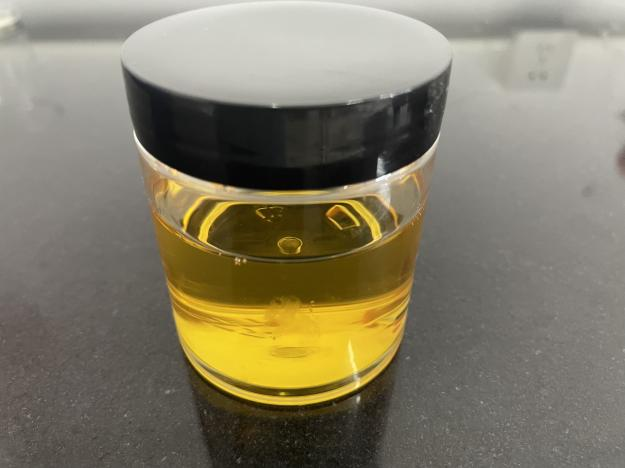Performance Comparison between Vinyl Ester Resin and Traditional Materials in Marine Steering Gear Parts Production

Marine steering gear is a critical component that controls the direction of a ship, and its performance directly affects the safety and maneuverability of the vessel. The choice of materials for manufacturing marine steering gear parts is therefore of great significance. In recent years, glass reinforced vinyl ester has emerged as a potential alternative to traditional materials in this field. This article aims to conduct a comprehensive performance comparison between vinyl ester resin and traditional materials in the production of marine steering gear parts.
Mechanical Properties
Cast iron, a commonly used traditional material for marine steering gear parts, has good castability and wear resistance. However, it has low tensile strength and toughness, making it prone to brittle fracture under sudden impact or heavy loads. Steel, on the other hand, offers high tensile strength and hardness, which ensures the structural stability of the steering gear parts. But clear liquid acrylic casting resin is relatively heavy, which can increase the overall weight of the ship and affect its fuel efficiency. Bronze, known for its excellent wear resistance and corrosion resistance in seawater, has moderate mechanical strength. Yet, its high cost limits its widespread application in large scale production.
Vinyl Ester Resin
Vinyl ester resin based composites exhibit impressive mechanical properties for marine steering gear parts. They have a high strength to weight ratio, meaning they can provide sufficient strength while being much lighter than traditional metal materials. This lightweight characteristic helps reduce the ship's weight, thereby improving fuel efficiency. In terms of toughness, vinyl ester resin composites outperform cast iron, as they can absorb more energy during impact without breaking. Additionally, their fatigue resistance is superior, which is crucial for steering gear parts that undergo repeated loading and unloading during ship operation.
Corrosion Resistance
The marine environment is highly corrosive due to the presence of saltwater, humidity, and various chemicals. Traditional metal materials are susceptible to corrosion in such an environment. Cast iron and steel are prone to rusting, which can lead to a decline in mechanical properties and even structural failure over time. Although bronze has better corrosion resistance than cast iron and steel, it still corrodes gradually in long term exposure to saltwater, requiring regular maintenance and replacement.
Vinyl ester resin, with its excellent chemical resistance, shows remarkable polyester vinylester in marine environments. It is not easily affected by saltwater, acids, alkalis, and other corrosive substances, ensuring the long term stability of the steering gear parts. This reduces the need for frequent maintenance and extends the service life of the parts, ultimately lowering the overall operational costs of the ship.
Processing Performance
Processing traditional metal materials for marine steering gear parts often involves complex and time consuming processes such as casting, forging, machining, and heat treatment. These processes require high energy consumption and specialized equipment, leading to higher production costs. Moreover, the machining of hard metals like steel can cause significant tool wear, further increasing production expenses.
Vinyl Ester Resin
These processes are relatively simple and flexible, allowing for the production of complex - shaped parts with high precision. They also consume less energy compared to metal processing methods, reducing production costs. Additionally, vinyl ester resin parts can be integrally molded, eliminating the need for multiple assembly steps, which improves production efficiency.
Cost Analysis
In terms of initial material costs, vinyl ester resin may be more expensive than cast iron and some types of steel. However, when considering the entire life cycle of the marine steering gear parts, vinyl ester resin offers cost advantages. Its excellent corrosion resistance and durability reduce maintenance and replacement costs. The simpler processing methods also lower production costs. In contrast, traditional metal materials require regular anti - corrosion treatments (such as painting and galvanizing) and more frequent replacements, which add to the long - term costs.
Application Prospects
With the continuous development of the marine industry, there is an increasing demand for high - performance, lightweight, and cost effective materials for marine equipment. Vinyl ester resin, with its superior mechanical properties, corrosion resistance, and processing performance, has broad application prospects in the production of marine steering gear parts. It can not only improve the performance and safety of the steering gear but also reduce the operational costs of the ship.
However, it should be noted that vinyl ester resin also has some limitations. For example, its high temperature resistance is not as good as that of some metals, which may restrict its application in high temperature working environments. Future research and development should focus on improving the high temperature resistance and other properties of vinyl ester resin to expand its application range in marine engineering.
In conclusion, compared with traditional materials, vinyl ester resin has obvious advantages in mechanical properties corrosion resistance, processing performance, and long - term cost in the production of marine steering gear parts. With the advancement of material modification technology, it is expected to play an increasingly important role in the marine industry.
Comments
Post a Comment